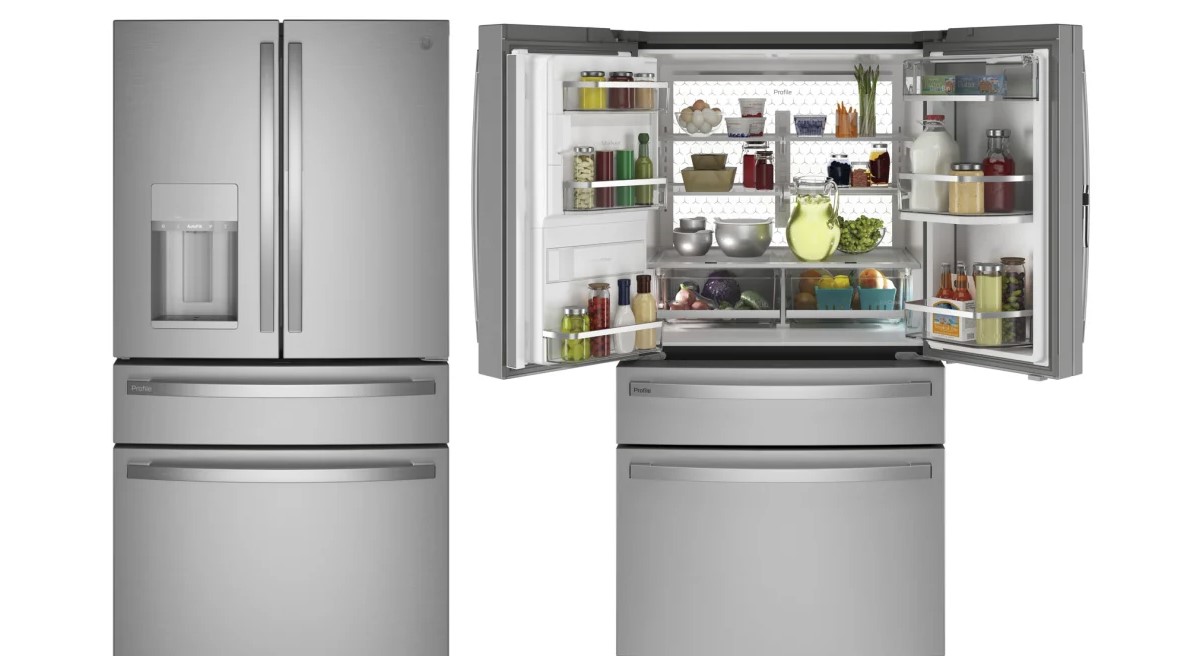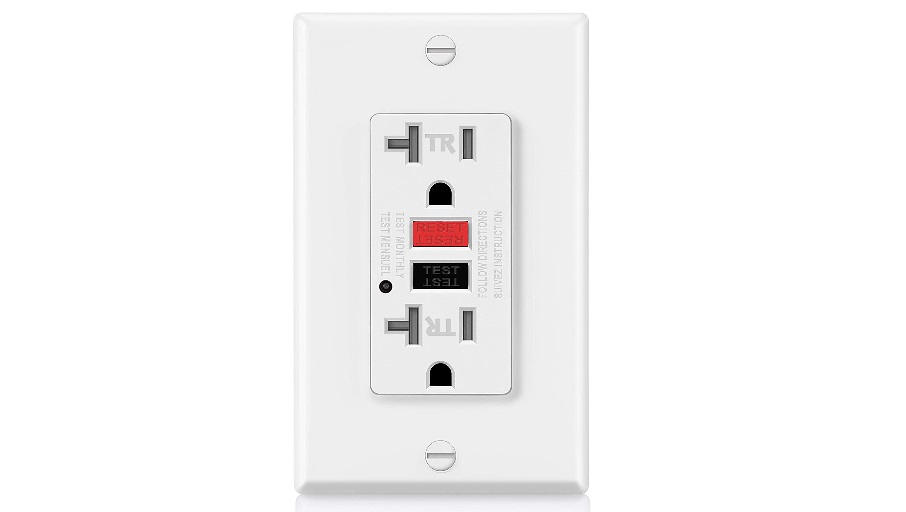GFCI (Ground-Fault Circuit Interrupter) is a safety mechanism built into the power socket to protect you from electrocution in case of a ground fault or short circuit. It monitors the circuit and shuts down automatically when it senses an electrical imbalance.
It’s mainly connected in areas prone to water like the kitchen, bathroom, and garage too.
Now, even though your refrigerator tripping the GFCI outlet saves you from electric shock, it turns off the refrigerator and this will cause your food to spoil. Especially if you don’t notice it early.
That said, this article will look into why your refrigerator trips the GFCI outlet and how to stop it.
What causes a refrigerator to trip a GFCI?
These are the main reasons for a refrigerator to trip a GFCI outlet and how you can fix them:
1. The cooling cycle/defrosting
The GFCI outlet is very sensitive. It can trip randomly when your refrigerator starts its cooling cycle. This is because the cooling cycle requires a lot of power which triggers the GFCI outlet. Considering the cycle is automated, you can bet on your refrigerator trips GFCI after a few hours.
Solution: To correct this problem, you need to reset your GFCI outlet using the guide below.
- First, unplug your refrigerator and other appliances connected to the GFCI circuit.
- You’ll see two little buttons on the outlet: TEST and RESET.
- Press the RESET button. It’s usually red in color.
- You’ll hear a click sound and your refrigerator should start working.
- Monitor the refrigerator. If it doesn’t trip again or often then it is probably a false trip.
The other option is to connect controllers and modern chips between the GFCI and your refrigerator. They increase the response time thus preventing nuisance/false tripping. Also, there are snubbers that you can install between the fridge and GFCI to reduce or eliminate the effect of the electrical current imbalance.
Read Also: How to fix a GE refrigerator that doesn’t stop running
2. Overloaded circuit
Your refrigerator can also trip the GFCI outlet when you connect multiple appliances to the same circuit. You can confirm this by either removing the other appliances then leave the refrigerator on the circuit. If it runs without tripping, then you’ll know the overload was the problem.
Solution: Connect your refrigerator to a dedicated power circuit.
3. Faulty appliance

System malfunctions within the refrigerator could easily cause it to trip a GFCI outlet that it’s connected to. For one, if the trip happens immediately after the fridge starts its defrost cycle, you could be dealing with a bad defrost heater. Secondly, it could be a failing compressor that forces your refrigerator to work harder to provide enough energy.
Lastly, wiring issues like loose connections and damaged wires can trigger the GFCI outlet to trip. This can happen through a short circuit (the charged wire contacts the neutral wire and cause too much heat) or ground fault surge (current wire and the ground wire touch resulting in overheating).
Solutions: You need to inspect the different refrigerator parts and repair or replace the faulty ones. You should consider hiring a qualified and experienced technician for this solution. In fact, to avoid future problems, schedule regular maintenance of the refrigerator.
4. Damaged power cord and plug
A damaged power cord and plug are also possible reasons the GFCI outlet keeps tripping. The damage usually results in a short circuit that triggers the trip. Unplug the power cord and inspect it for damages like rodent bite marks, holes, worn-out insulation, etc.
Next, inspect the prongs on the power plug for signs of rust and other damages.
Solutions: Replace the damaged parts to stop a fridge from tripping the GFCI.
5. Faulty circuit breaker
When your circuit breaker is faulty, chances are that it will affect the power supply in your home. This includes the GFCI outlet that your refrigerator is connected to, hence the constant tripping.
Solution: Hire a technician to inspect the circuit breaker and replace it if there are signs of damage. Try and get a breaker that’s rated for GFCI.
Read Also: How to fix a fridge door seal that is not sticking
6. Faulty outlet
The GFCI outlet can also trip because of internal damage. It could be burned-out wires, loose connections, or water getting into the outlet. To be sure, connect your refrigerator to another power outlet. If it works, then your GFCI could be the problem. But, you should try and plug another electrical device into the GFCI outlet that keeps tripping to see if it’s receiving power.
If the device is getting power then the outlet is okay, only that it doesn’t work with the refrigerator because their settings don’t match.
You can reach out to a technician to open the outlet and check for physical damages. They should then use a multimeter to test the outlet for continuity.
Solutions: When you discover the outlet has no continuity, wires are damaged, or any other malfunction, the best thing to do is replace it immediately.
Ideally, connect your refrigerator to a non-GFCI outlet.
Should a refrigerator be plugged into a GFCI outlet?
Based on the high inductive nature of refrigerators, it’s not recommended to connect them to GFCI outlets.
They pull a lot of power that triggers the GFCI to trip falsely. The refrigerator doesn’t need GFCI outlet protection. Especially if it’s connected to a dedicated circuit.
Conclusion
To wrap up, we hope that our troubleshooting guide helps you to stop a refrigerator from tripping a GFCI outlet. If the problem persists, consult a qualified and seasoned electrician.
Don’t take any chances. These simple issues can escalate if you don’t apply a timely solution. Not to mention the extra repair costs.

